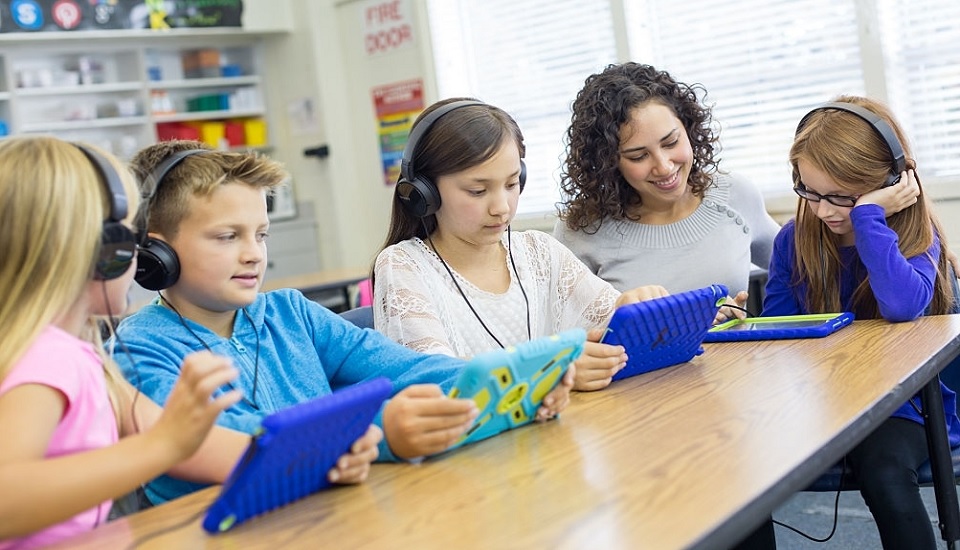Help For Kids With Auditory Processing Disorder
26th October 2021

According to the statistics Auditory Processing Disorder affects around 3-5% of children, usually diagnosed when a child starts their schooling. Kids with APD lack the basic skill to decode and remember what they hear.
If you notice this in any of your students in the classroom, keep an open mind as children with difficulty in auditory processing can be supported with a combination of mindful instruction, a quieter environment, and professional help.
Furthermore, special education courses for teachers can help teachers who are dealing with APD children can build supportive learning instructions for these children.
Defining Auditory Processing Disorder
Auditory Processing Disorder does not affect hearing, to be clear, it is not hearing loss, however, the difficulty arises in the ability to process and use the auditory information. Especially if the surrounding environment is noisy, the difficulty level becomes high that can interfere with a child’s ability to concentrate, learn, and interact. So, when a child has Auditory Processing Disorder (APD) it means, the child faces disruption in understanding what he/she is hearing, resulted from poor coordination between earns and the brain.
By definition Auditory Processing Disorder, also known as Central Auditory Processing Disorder (CAPD) is a disorder of the auditory system at the brain level that causes problems deciphering/decoding the sounds, thereby makes it difficult to manage information.
What Causes Auditory Processing Disorder?
It is essential to note that even if the child is struggling in hearing-related tasks, the problem lies in recognizing and interpreting sounds caused in the auditory cortex. The root cause of this disorder is difficult to pinpoint. Many experts believe:
• Head injury/trauma
• Chronic ear infection
• Developmental delay
• Complications during birth
As possible causes of APD. Also, there are high chances of overlapping symptoms of ADHD, learning difficulty, and language disorder. Hence, the right kind of diagnosis with appropriate support is a priority.
What Are Some Common Signs And Symptoms Of Auditory Processing Disorder (APD)?
If you suspect any child with APD, look out for these signs:
• The child struggles in listening when the surrounding environment is noisy or crowded.
• Faces difficulty in following instructions and directions.
• Finds it confusing to recognize similar sounding words.
• Mishears sounds and words.
• Has trouble with spelling and phonics.
• Verbal communication is hard for the child (to follow and interact).
When you notice the child performs better in a quiet environment.
Since the signs of APD has a tendency to overlap with learning difficulty, both parents and teachers need to understand mere checklist will not help them to locate the problem. The child with possible Auditory Processing Disorder needs to be diagnosed by an audiologist – who then can run a thorough test to clarify the problem area.
How Can You Help Children With Auditory Processing Disorder?
Because APD is hard to diagnose, the lack of understanding of this disorder makes it even harder to find any cure. It is said that around 3 to 4 percent of the population has APD, which makes it relatively rare. Also, there is a good chance of outgrowing auditory processing challenges, as our auditory system fully matures when we are 14 years old.
Nonetheless, children with auditory processing weakness can certainly benefit from accommodations. With the right intervention and supportive care children with Auditory Processing Disorder (APD) can improve their listening skills and in some cases can restore their listing abilities.
Here are some tips to help children with Auditory Processing Disorder –
• Optimize the surrounding environment by eliminating distractions and noise,
• Assist verbal presentation with visual tools to simplify instruction.
• Strategize the seating arrangement in the classroom.
• Repeat instruction when necessary.
• Avoid speaking too fast or too slow.
• Talk face to face while having conversations.
Bear in mind treatment for APD needs to be tailor made for each child. Special education courses for teachers can help teachers to facilitate a better learning environment for APD children to strengthen school performance. Additionally, other special needs experts, such as speech and language specialists can also help children to strengthen their decoding skills.
Apart from supportive measures, kids with auditory processing challenges need to be motivated well. Encourage them to speak for themselves. Most importantly, as things can seem tough for them, help them understand that there is nothing to be ashamed of, above all, be patient.
Written By : Park Jin Ae

